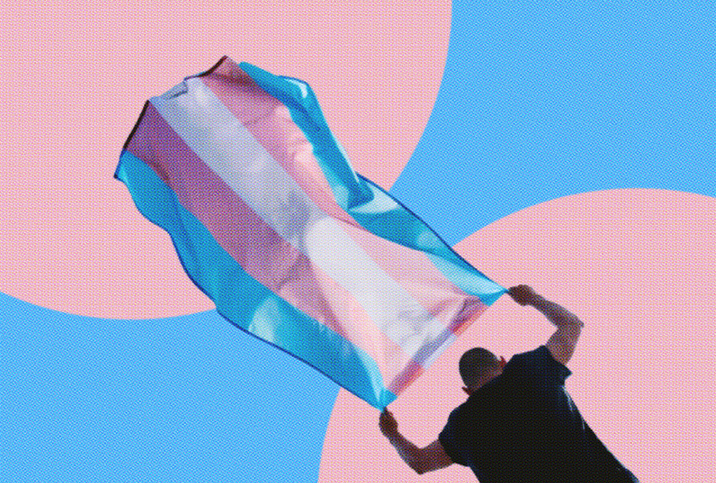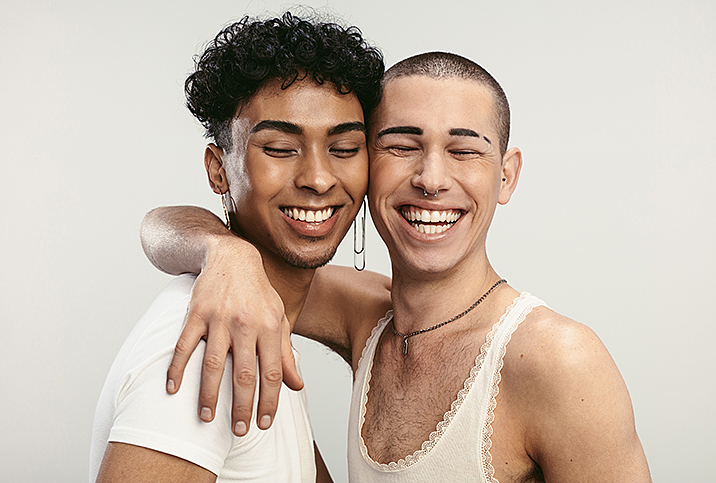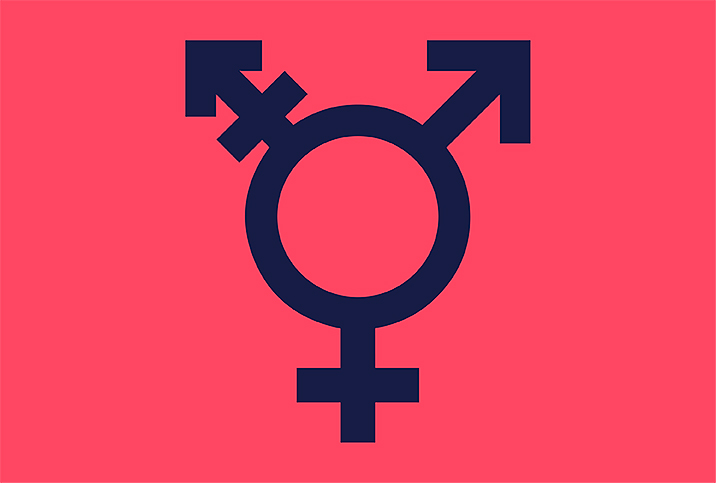The Fight for Transgender Rights & Equality

It's no secret that transgender people face discrimination. From debates around the scientific validity of their gender identities to day-to-day challenges, life as a trans person is an uphill climb. Arenas of discrimination include the workplace—90 percent say they have faced mistreatment on the job—and even health care, where 1 in 3 transgender people say they've had a bad experience with their health provider in the past year.
In 2015, a national survey found 46 percent of trans Americans had been verbally harassed and 9 percent physically attacked in the past year. In 2020 alone, at least 44 trans or gender- nonconforming people were murdered in the United States; Black and Latinx trans people were the main targets.
It's not surprising, therefore, that studies of transgender people report poorer mental health outcomes and greater psychosocial burden. Half of trans people experience mental health disorders such as anxiety and depression, and 41 percent have attempted suicide.
How policy hurts trans people
In recent years, transgender rights have entered the political spotlight. Policy enacted in April 2019 dictated that trans individuals could not enlist in the military, and anyone who realized they were transgender after the policy took effect could not transition or otherwise express their gender identity. (This policy has since been reversed.) In summer 2020, sex-based discrimination rules in the healthcare industry changed to exclude trans individuals. Similar rule changes in other industries followed.
Meanwhile, media attention has focused on court cases filed to prohibit transgender individuals from using restrooms designated for their gender identity. To address discrimination, the Equality Act was introduced in spring 2019 so the U.S. could join the more than 70 nations that have outlawed discrimination based on sexual orientation or identity. Though it passed in the House of Representatives, it has yet to be passed by the Senate.
Finding support
Thankfully, myriad organizations offer information about transgender identity and issues, as well as support for the trans community and trans rights:
- The National Center for Transgender Equality aims to end discrimination and violence, and provides education and advocacy.
- Trans Lifeline offers support, particularly in mental health crises.
- The Jim Collins Foundation helps fund transgender health care.
- The Trans Women of Color Collective provides support to some of the highest-risk members of the transgender community: Black women.
- The Transgender Law Center works for policy change.
- The Trans Justice Funding Project finances anti-oppression transgender organizations, projects and groups.
There's also the Trevor Project and the Tribe for mental-health support, Forge for trans seniors, and Gender Spectrum for teens and their parents.
Becoming a trans ally
The most effective way to support the transgender community is to educate yourself about trans identities and the key issues the trans population faces. Be a positive voice in discussions: share information, educate others and speak out against hate and discrimination.
Treat transgender people as you would want to be treated yourself—with dignity, respect and compassion.


















